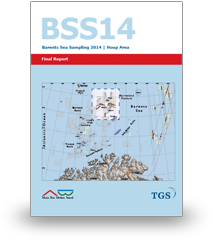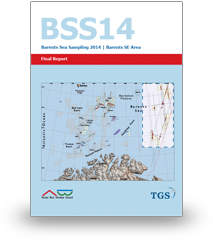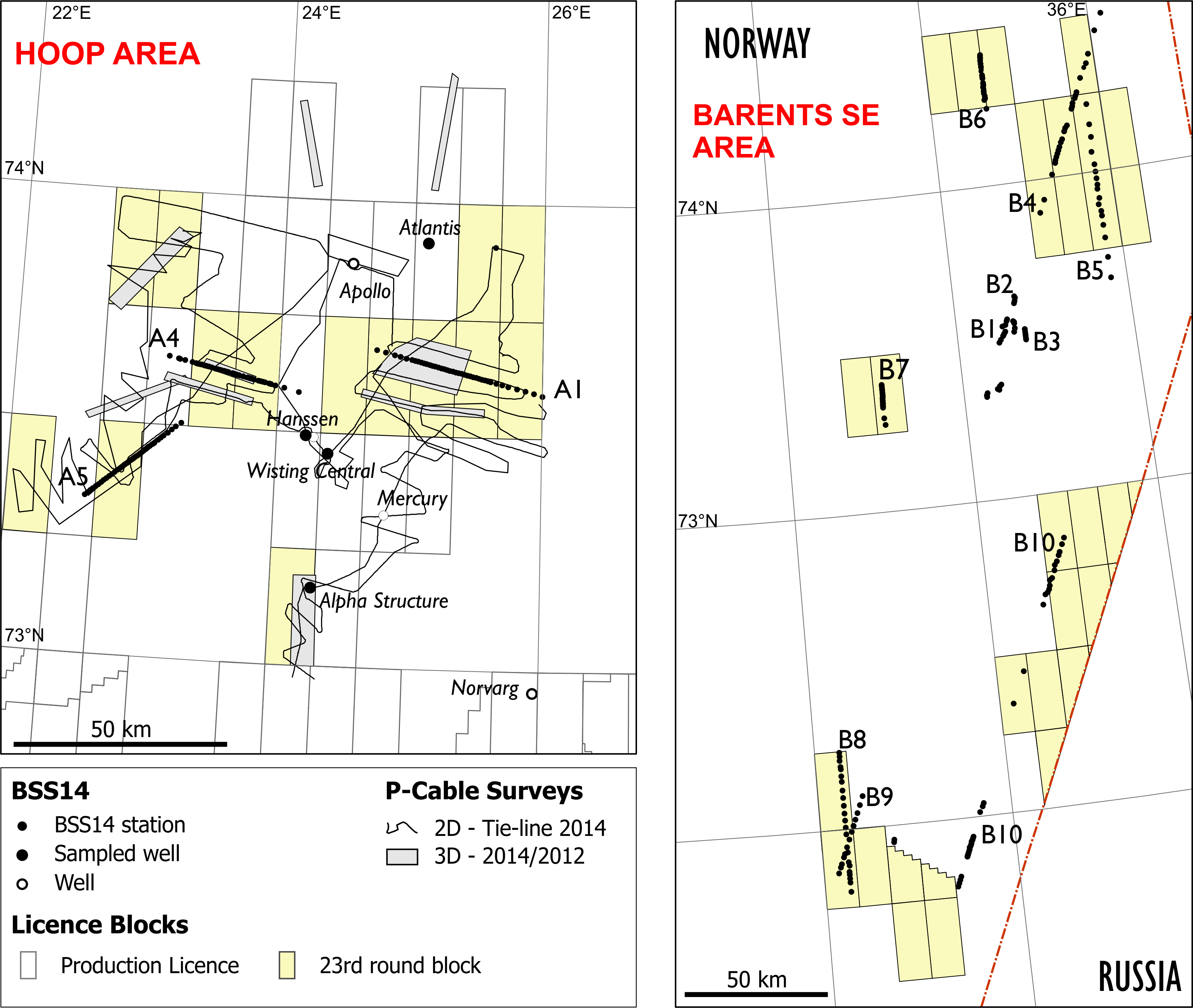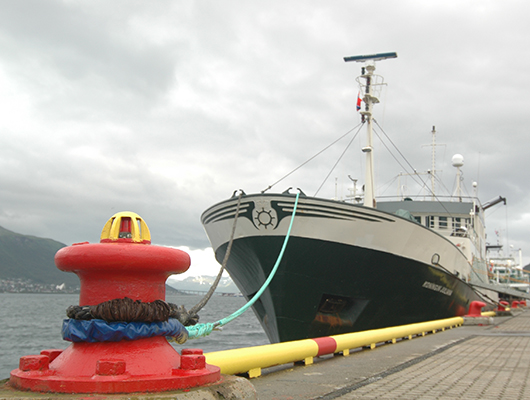Barents Sea Sampling 2014
The results of the study was highly relevant for constraining geological models in terms of hydrocarbon prospectivity for areas opened for the 23rd Consession Round in Norway. Over 450 gravity cores were collected in the Barents Sea to identify hydrocarbon seepage anomalies and for seismic-stratigraphic tie.
The seep studies were carried out using three different analytical methods:
APT Standard organic geochemical analysis of Applied Petroleum Technology
AGI Amplified Geochemical Imaging
MPOG Microbial Prospecting for Oil and Gas method
The reports for BSS14 Hoop Area and BSS14 Barents SE Area are sold separately.
In 2017 additional calibration points were incorporated and the full BSS14 database re-evaluated. A new workflow was also developed for improved identification of hydrocarbon phase. See BSS14 Repro

Barents Sea (Hoop Area) Sampling Project 2014
Edited by Stephane Polteau, and Sverre Planke.
One hundred and sixty sampling locations targeted deep-seated Jurassic fault blocks and potential hydrocarbon seeps on the Hoop Area:
- 125 gravity cores and 35 sites in the vicinity of seven wells for geochemical calibration
- Standard (APT), amplified (Gore), and microbial prospecting (MPOG) seep analyses detected micro-seepage

Barents Sea (Barents SE Area) Sampling Project 2014
Edited by Stephane Polteau, Adriano Mazzini, and Sverre Planke.
Two hundred and ninety-three sampling locations targeted deep-seated sturctures, including faults blocks, diapirs, outgoing stratigraphy, and potential hydrocabon seeps on the Barents SE Area:
- 293 gravity cores recovered
- Two active petroleum systems identified
- Micro-seepage of liquid hydrocarbon to the seafloor detected
- Seismic to geology tie

Map showing Hoop Area and Barents SE Area sampling sites and 23rd round blocks.

M/V Koninging Juliana during the BSS14 survey.
CONTENTS
Executive Summary
Introduction
- Aims and Introduction
- Presentation of Results
- Geological Framework
Operations
- Overview
- M/V Koninging Juliana
- Sampling Crew
- Mobilization
- Deployment and Recovery Procedures
- Diary of Events
- Production Levels
- Post-Cruise Time-Line
Explanatory Notes
- Authorship
- Acknowledgements
- Survey Systems
- Coring System
- Wet Lab
- Geochemistry
- Sampling Subcrops
- Biostratigraphy
Results
- Geophysical Data
- Sampling Results
- Standard Seep Geochemistry
- MPOG
- AGI
- Stratigraphic Samples
Integration and Conclusions
- Introduction
- Calibration Sites
- Areas
- Petroleum Systems
- Conclusions
Bibliography
Appendices
- Core Descriptions
- Original Lab Reports
- APT Data Report
Digital Data